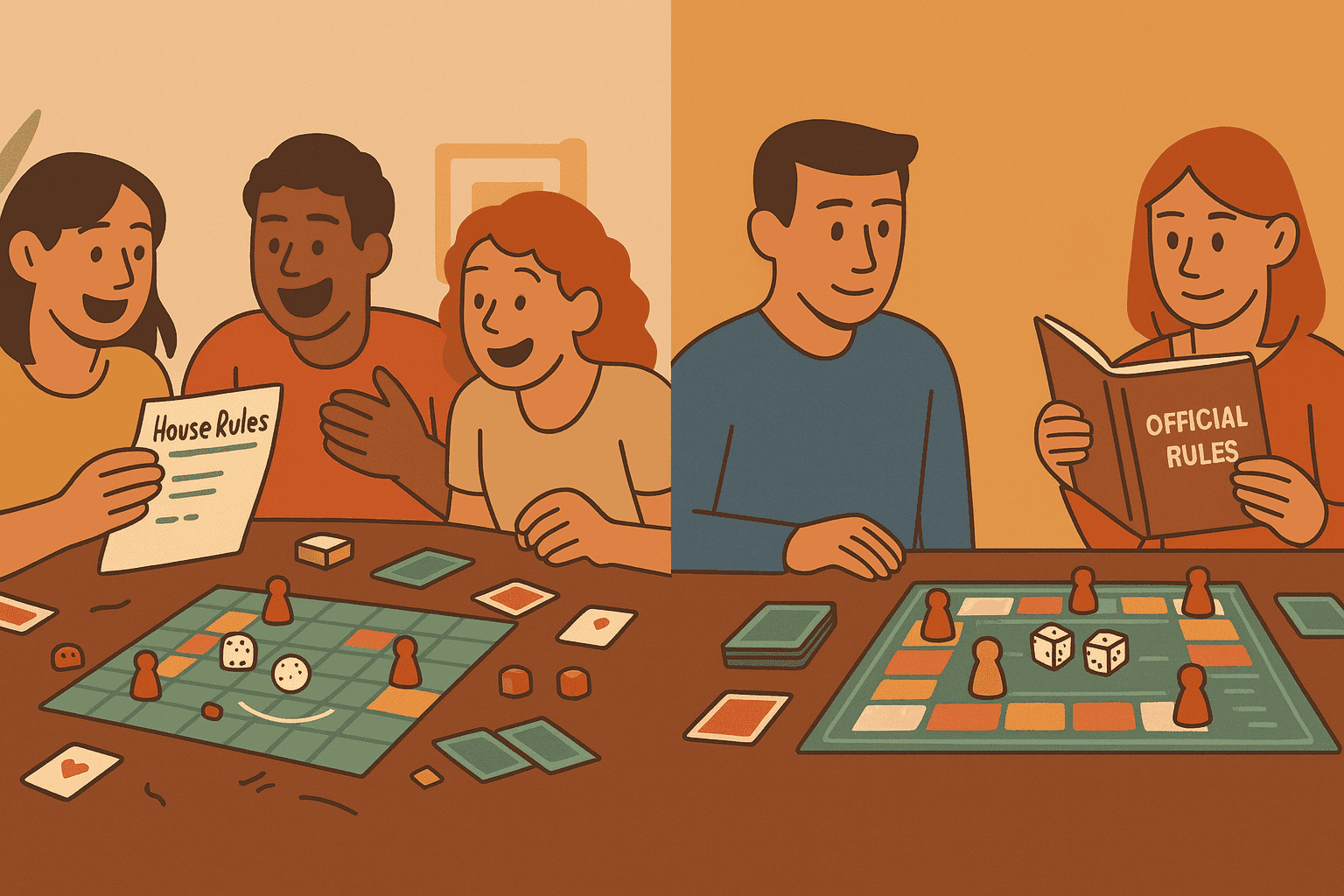
The Difference Between House Rules and Official Rules
Game nights are all about fun, but sometimes they come with disagreements about what’s “allowed.” Should you stick to the official rules in the manual, or use house rules that everyone in the group prefers? Understanding the difference between house rules and official rules helps you set clear expectations and ensures everyone enjoys the game.
Created By Adam Davis Fernsby
What are official rules?
Official rules are the standardized instructions provided by the game’s publisher or tournament organizers. They explain exactly how the game is meant to be played and ensure fairness and consistency across all players.
These game rules are most commonly used in:
- Tournaments and competitions.
- Online platforms where standardized play is required.
- Teaching new players the original, intended format.
For example, official Blackjack rules in a casino are carefully controlled, ensuring the same experience worldwide. Similarly, Trivial Pursuit tournaments follow strict rules on scoring and categories.
What are house rules?
House rules are custom changes or additions made by players or groups to adjust gameplay. They’re often used in casual settings, like family game nights, to make games simpler, faster, or more fun.
Common examples of house rules:
- In Rummy, allowing players to draw multiple cards instead of one.
- In Yahtzee, letting everyone reroll an extra time for better scores.
- In Skip-Bo, shortening the game by reducing the number of stockpile cards.
House rules aren’t “wrong” they’re simply personalized versions that make sense for your group.
Key differences between house rules and official rules
| Aspect | Official Rules | House Rules |
|---|---|---|
| Source | Game publisher / tournament body | Players or gaming groups |
| Flexibility | Fixed and standardized | Fully customizable |
| Use case | Competitions, online play, rankings | Casual play, family game nights |
| Consistency | Same everywhere | Varies between groups |
| Examples | Casino Blackjack rules, official Trivial Pursuit scoring | Custom Yahtzee rerolls, shorter Skip-Bo rounds |
When house rules make sense
House rules are perfect when you want to:
- Make a game easier for beginners.
- Speed up longer games like Rummy or Skip-Bo.
- Add creative twists for more excitement.
- Customize gameplay for family or friends.
If everyone agrees on the adjustments, house rules can make game nights smoother and more fun.
When sticking to official rules is better
Sometimes, following the official rulebook is the smarter choice, especially when:
- Playing in tournaments or organized events.
- Competing online, where systems enforce standard rules.
- Joining a new group where everyone expects the original format.
- Learning a game for the first time to understand the intended design.
Examples of games and their rule sets
Want to see how rules work in practice? Check out these Playiro guides for detailed instructions:
- Rummy Rules - A classic card game with many variations where house rules are very common.
- Yahtzee Rules - A popular dice game where players often tweak scoring and reroll limits.
- Blackjack Rules - Learn the official casino rules, but also how casual home games modify payouts.
- Trivial Pursuit Rules - Discover how house rules often shorten the game and make it faster.
- Skip-Bo - A card game where families frequently create shortcuts and faster-play rules.
These guides explain both the official instructions and common house rule variations so you can choose what works best for your group.
Final thoughts
The choice between house rules and official rules depends on the setting. Official rules bring consistency and fairness, while house rules add flexibility and fun. The key is making sure everyone agrees before the game begins.